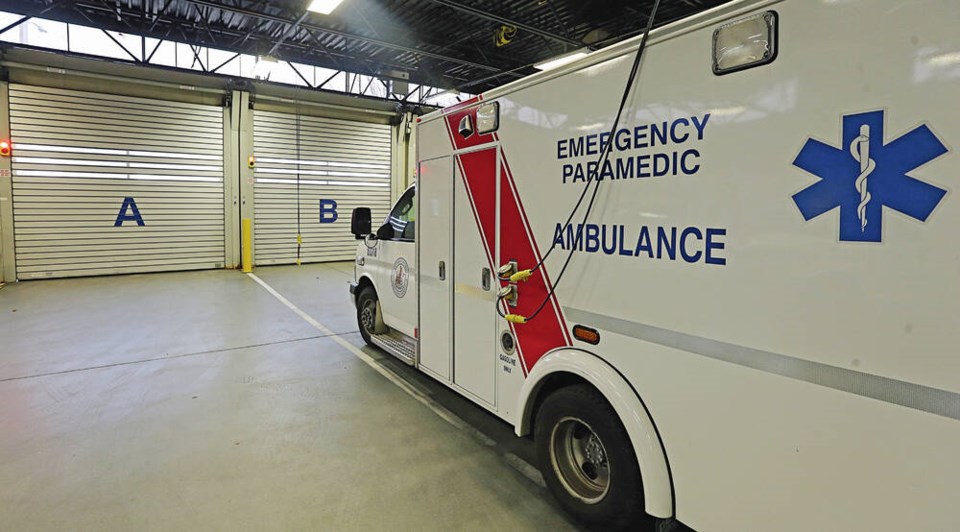Times Colonist
Sixteen communities on Vancouver Island and the Gulf Islands now have more paramedic coverage.
Three of the communities — Gabriola Island, Gold River and Quadra Island — were upgraded to 24/7 full-time ambulance stations on April 1, meaning they will each have eight full-time positions with paramedics based at the station at all times.
Previously, they had paramedics in the station eight hours a day, with 16 hours of daily on-call service.
Another 12 communities — Alert Bay, Cortes Island, Denman Island, Galiano Island, Mayne Island, Pender Island, Port Renfrew, Port Alice, Sayward, Sointula, Tahsis and Ucluelet — were upgraded to a new “mix shift” staffing model on April 1.
That includes having staff on station twice as often as before, at 16 hours a day, along with eight hours of on-call service with pagers at night.
Zeballos, meanwhile, got a new full-time paramedic-unit-chief position to support on-call paramedic staffing.
Michelle Pottage, a director for the Regional District of Mount Waddington, based in Port McNeill, said she’s glad to see the changes, which she had advocated for, and is looking forward to improved paramedic resources for Sointula and the north Island.
The plan to adjust staffing in 60 rural or remote areas, including the 16 on Vancouver Island and the Gulf Islands, was announced in November by B.C. Emergency Health Services, the paramedics’ union — the Ambulance Paramedics of B.C., Local 873 of the Canadian Union of Public Employees — and the Ministry of Health.
Additional positions were added in Rossland and Sointula in December.
B.C. Emergency Health Services and the union — which represents about 5,000 paramedics and ambulance dispatchers — said they worked closely with communities to find the best staffing models to recommend to the Ministry of Health.
Ambulance Paramedics of B.C. president Jason Jackson said the new approach will help in recruiting and retaining paramedics to work in smaller communities, improve response to 911 calls “and, most importantly, help paramedics provide better care to our patients.”
Paramedics’ latest collective agreement formally raised the on-call rate from $2 per hour to $12 per hour, after it was first established as a temporary measure in October 2022 during contract negotiations.
The three-year collective agreement, retroactive to April 1, 2022, included a flat increase of 25 cents per hour, plus a wage increase of 3.24 per cent in the first year, a second-year wage hike of 5.5 per cent, with a potential cost-of-living adjustment of up to 6.75 per cent, and a third-year wage increase of two per cent, along with a potential cost-of-living adjustment up to three per cent.
The changes come as B.C. makes one of its largest-ever recruitment efforts for paramedics, spearheaded by a 32-member recruitment team.
Another team with five Indigenous recruiters has been established in an effort to hire more Indigenous paramedics.
The operating budget for B.C. Emergency Health Services has increased from $424 million to $766 million since 2017, the ambulance agency said.
>>> To comment on this article, write a letter to the editor: [email protected]



